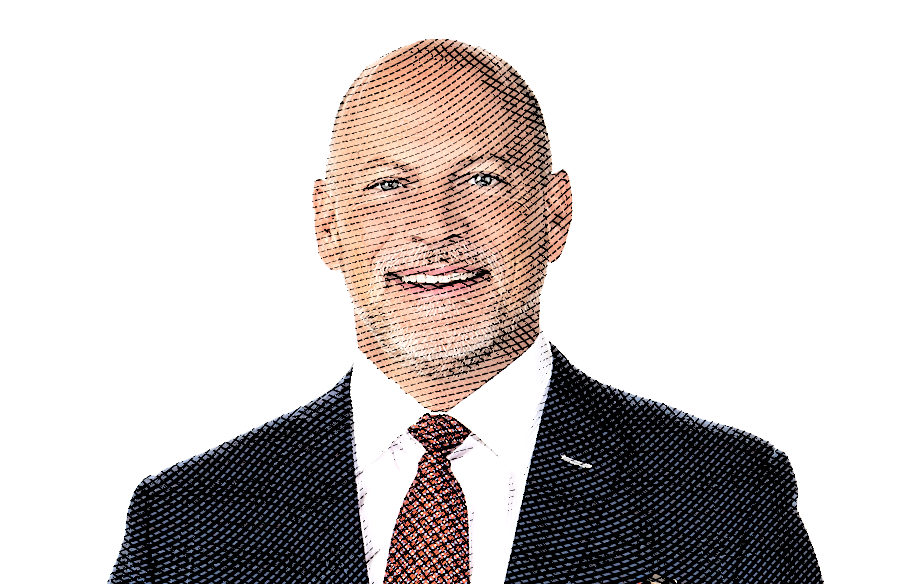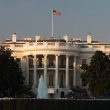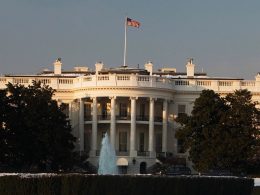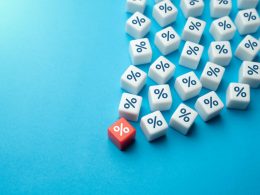When people talk about cash being king,
it's not king if it just sits there and never does anything.
–Warren Buffett
Our conversation with Steve Hawkins, President and CEO, Horizons ETFs, we discuss markets, trends, and why cash balances shouldn't be a drag on investing, which led his firm to launch two new cash management ETFs. HSAV, launched earlier this year, and HSUV.U, launched more recently, are solutions for some of the perennial problems of investment account cash balances, which typically next to zero-interest, and are a drag on returns and revenue.
Transcript:
Pierre Daillie: (00:00:00) Hello, and welcome to the Insight is Capital podcast. My name is Pierre Daillie, Managing Editor of AdvisorAnalyst.com.
Our special guest is Steve Hawkins, President and CEO of Horizons ETFs. Steve is responsible for the day to day business and affairs of Horizons ETFs. He's been in the industry for more than 25 years, and he's been with Horizons since 2007.
Steve is known for being, in part, responsible for the proliferation of ETFs in Canada, and has brought many first of their kind ETFs to market. He spearheaded the launch of the world's first marijuana ETF, the world's first global equity ETF driven by artificial intelligence, and Canada's first robotics and automation ETF
Without further delay my conversation with Steve Hawkins.
Steve welcome to the show.
Steve Hawkins: (00:00:52) I just want to say thank you very much for AdvisorAnalyst for having us, having me on, and and thinking of Horizons ETFs.
Pierre Daillie: (00:00:59) It's really a pleasure to get a chance to talk to you smack in the middle of the summer. and we're also still in the later bit of, the, COVID pandemic shutdown and all that's been going on, since, late February.
You're really among those that are at the center of the business and it's great to get your perspectives. We've had a number of conversations, with Mark Noble, with Brooke Thackray, who looks after the Horizon Seasonal Rotation ETF recently.
And, coming up, we have another conversation with Hans Albrecht and, Nicolas Piquard.
From your place, As CEO of Horizons ETFs, with all of the feedback you're getting, what are your thoughts about the market right now?
 Steve Hawkins: (00:01:46) From my perspective, 10,000 foot level, I'm also in a unique position cause I'm chairman of the Canadian ETF Association (CETFA) right now as well. So I see a lot of what's going on, generally in the marketplace. Horizons ETFs itself is very proud to be an ETF only shop, and not be in the mutual fund space and not have to worry about the concerns that the mutual fund asset manager, producers, are having these days and, and, try now to break into the ETF marketplace, we were the third ETF provider in Canada, initially. Then the second one actually sold their company. So we became the second ETF provider and we're the fourth largest ETF provider behind BlackRock, Vanguard, in Canada, the unique one is BMO.
Steve Hawkins: (00:01:46) From my perspective, 10,000 foot level, I'm also in a unique position cause I'm chairman of the Canadian ETF Association (CETFA) right now as well. So I see a lot of what's going on, generally in the marketplace. Horizons ETFs itself is very proud to be an ETF only shop, and not be in the mutual fund space and not have to worry about the concerns that the mutual fund asset manager, producers, are having these days and, and, try now to break into the ETF marketplace, we were the third ETF provider in Canada, initially. Then the second one actually sold their company. So we became the second ETF provider and we're the fourth largest ETF provider behind BlackRock, Vanguard, in Canada, the unique one is BMO.
It is a unique vantage point having been here for 12 plus years. In the Canadian ETF marketplace. And even though Canadian ETFs were the first ETFs in the world. nobody really thinks about Canada that way. And, and, most of the, the majority of the ETF providers of the 37 ETF providers were all created in the last three years. So there isn't a lot of people that were, that have been around in the ETF space for a long time. I've had the pleasure of being in the Horizon's fold since inception and, I'm, happy to be where we are today. as the fourth largest ETF provider in Canada.
These are very unprecedented and unusual times, even having, worked in this industry through the, the crash of 97 and, and, and things like that from my personal history. The reasoning and the rationale behind what is going on right now is so very different than anything we've ever seen in the past.
The negative oil prices we saw in April for the first time in history. it's just a very, very unusual space . Canadian investors, generally speaking, I think have been good investors on a relative basis to the rest of the world. I don't know what is continuing to drive these U.S. Equity market prices higher, still from where they are now with all of the bad news that is still coming out and continuing to coming out and.
Is there going to be a second phase and is there going to be a third phase of what's going on with this pandemic and, and how will that affect the marketplaces? Will there ever be an airline industry again, like who knows? Myself I traveled almost the two out of every three days last year and in 2019, and outside of just traveling to a few cities in Canada, like Montreal, Calgary, Vancouver, Edmonton. I don't expect that it would be any travel in my future. You know, I'll be dealing with Canadian clients. There won't be international conferences anymore. The world as we know it has changed or has had to change right now and will continue to have to adapt to this a new way of doing business on a, on a global scale.
For us, product launches have generally slowed down. We had to really step back. We were impacted last year by Canada Revenue Agency which took aim at the certain ETFs which most affected us.
We had to really reorganize our entire Horizons ETF suite, the way that we do business, and I think that was very positive for us and, and it's going to be very positive for us on a going forward basis, even though we had great momentum up until that point in time, we continue to innovate, we continue to evolve here at Horizons ETFs.
I think new technologies and things like that in this marketplace are so very important. And, and, to your point about like, what's going on overall, Canadian investors are still big fixed income investors, we don't invest enough outside of Canada, that we should be, though, most Canadian, the majority of Canadian equity flows, Canadian ETF equity flows this year have been outside of Canada, primarily the U S but some, some EAFE, some emerging markets, to that extent, but, Canadian investors have really had to, change the way they do business.
We have so many people sitting at home these days sitting on their computers, and they're like, Oh, well, I can be, I can be my own investment advisor now. Right. People are trying to take control of their own investments, future. And I'm not necessarily sure that they're doing a very good job, but, but an ETF is the right tool from our perspective, to help them to empower them, to take action with respect to their own investment portfolio.
I have some with a robo-advisor. I have some with a registered advisor. I have some that I manage myself, but, I, I, I use all of the different avenues that, that are available to me, even as a professional investment manager myself, I don't have time to manage all of those things.
And, and I don't get to, I don't have the luxury of, of working from home these days, per se though. I sure I could, but I actually like coming into the office. I, it's, it's a four minute walk for me or a two minute scooter ride. But walking around the streets of Toronto here and, and there's nobody here.
It is so surreal. It is so very different. And I know it's this way, everywhere else in every other major city. Right. So, you, yourself, you have your bookshelf behind you and, you would see me with my, my, my office, furniture behind me still, but, but I'm wearing a tee shirt and sandals.
So, it's a, it's a very different work atmosphere, right? We're not meeting clients face to face anymore. Everything is being conducted by phone call and video calls. So it is a very different world out there. I really don't know when things will change from the way they are right now, people keep saying, Oh, it's going to be August 1st.
It's going to be August 15th. It's going to see September 1st until there is like a hundred percent proven vaccine. this world is not going to change any time.
Pierre Daillie: (00:07:41) Absolutely. I think, there's some folks who think that this is the second phase, but it's really still only the first phase.
And, this resurgence of cases in the U S really you would think that it would cast a pall on the market. It would, it would raise the uncertainty level, but, by, by all appearances, it certainly hasn't. And, when you, when you look at where stocks. are going, not all stocks, but, certain groupings of stocks that are, the stay at home stocks as they call them.
What are your thoughts on the market in terms of, of why it's behaving the way it is? I think some of the, conversation that was happening, some of the talk was that because, there's no sports and therefore there's no sports gambling. The sports books are closed. And so, all of these folks that spent time betting on sports there's no more sports, so there's no more betting.
So they've shifted to day trading is certainly one of the things that's been talked about quite a bit. and that, that may be part of what's driving this, FOMO, fear of missing out market that going higher and higher, even though there's so much uncertainty.
Steve Hawkins: (00:08:56) Yeah. there was a lot of money sitting on the sidelines last year as well. Right. And, and one of the topics that I know that we're going to talk about today is a cash savings ETFs, and, and there was so much money that went into these types of products last year. There continues to be a lot of money that are going into these products. but your point is absolutely correct.
from the perspective of people don't know what to do with themselves and, and there are, one of the highest selling ETF categories this year that which has never been there before is, are. Commodity trading ETFs and leveraged Denver's leverage ETFs, right? People speculating on a day trading perspective on what's happening with oil, crude oil, crude oil, natural gas, gold, silver, all of these things, and all, all these asset classes, which are really the easiest to access for the end investor, the retail investor, through a, an, just an online trading account.
They can be bought through ETFs and you can get leverage exposure to oil and that gas gold, and... so levered ETFs have significantly picked up from a, a volume perspective, both this year and last year. our, our leveraged or crude oil up a bull ETF, is in the top 10 ETFs this year of, of, of net sales of money coming in.
and it has not performed very well. but that's where people are speculating on. potential returns, and, and, I wish they had put their money into leveraged NASDAQ instead of leveraged oil, cause we would've made a lot of money in, they would have made a lot of money through this period. The world has changed.
There's a lot more people that are trading directly. I sat down over breakfast this morning and talked to my son about, his personal trading and he wants to open a margin account. He's got, gotta go through the bank, a regulatory compliance approval process to do that.
He's got a TFSA, but that's for just very short term or not, or sorry, very long term passive investing in, but he's, I want to day trade now, he works for a bank and then it's like, there's all these opportunities. And I think people are a little bit bored and there people are seeing so many potential opportunities out there.
And, people are their own worst nightmares when it comes to investing and it's not unusual for people to buy at the high end, sell at the low. Right. And so, I do it myself sometimes and,...
Pierre Daillie: (00:11:24) Sure. We're all, we're all prone to it, right? Investor behavior is the, number one, determining factor of success in the long run.
Steve Hawkins: (00:11:31) We, we invest with emotion. And, and, and, and a lot of speculation and, it's not always based on fact and, and proven circumstance.
Pierre Daillie: (00:11:42) So I want to go back and talk about this cash saving ETF .
Cause I think that's an interesting phenomenon. it's interesting that, that in the midst of the kind of bull market that we've been having, post COVID, post the COVID lockdown and pre even, because this is something that's been happening for, for a while now. Cash savings ETFs have become one of the most popular asset classes over the past year. And I'm, so we're not just talking in the midst of this crisis, but over the past year it's become popular , so why is that?
Steve Hawkins: (00:12:15) Well, it's, and there's a few different reasons. I think one last year, from my perspective is there was a lot of people that saw so much uncertainty in the marketplace. They didn't know what to do with their money. you put it in the bank account and you earn zero on it, or you actually lost money on it. Cause you paid fees. We were buying at one point in time we were buying treasury bills and it was costing us money to invest in treasury bills.
That's not something that you, that's not a positive prospect for people, even though they're earning yield. they don't want to lose money on their capital kind of thing, right. With a bank account, you're not going to lose it. It's always going to be there for you and things like that.
But you're not earning yield on it. With these high interest savings account ETFs, it's essentially another institutional tool, or larger organization tool, that the banks have always had. It's always been a carrot for these big investors and things like that, but it's never been available to the retail public before.
It's like day trading oil, futures, contracts, people still don't do that from a data trading perspective or a retail investor perspective with futures. Now they do it with an ETF, right? So ETFs are is another investment tool, which is allowed access to an always existing asset class that's been out there, but only a few people had access to it before. And, there's almost 10% of the ETF sales in Canada last year, were into higher interest savings, ETFs. And, people aren't supposed to be necessarily allocating 10% of their portfolios to cash per se. But 10% of the ETF sales last year were in these high interest savings ETFs, and, and again, I, can't really tell you why, other than speculating that people were very, very nervous about the marketplace. I know I actually kept a high cash balance last year, myself. I didn't have it invested in a high interest savings account ETF. I wish I had one last year, to be able to do that, but I was invested in one of our other short duration, high yielding products that was supposed to have very low, low notional risk to it from an underlying asset perspective. So yeah. So interesting phenomenon.
Pierre Daillie: (00:14:34) This is a time when, logic says that investors should be raising cash. out of some of the more speculative things that they're holding and, so, or, or this would be, this is also, deemed to be a terrific time to, reconstruct your portfolio for the future, given where we are in the cycle. The cycle it looks like we had the quickest bear market ever. And then the previous cycle resumed. It was like a secular flash crash now the market has resumed plowing forward to new heights.
Steve Hawkins: (00:15:09) Doing very well.
Pierre Daillie: (00:15:11) Yeah. Extremely well. And, yet, you can't ignore the amount of volatility there's been in those same stocks, over the past year. And, so that's why the subject of cash savings ETFs. It seems like an odd thing why there's demand, but then when you obviously start to reason it out, it makes sense .
We had a taste of a potential bear market at the end of 2018. And then, and then now we had a full blown bear market. It only lasted, a month and a half or two and, and stocks are back to new, many, most, most of the indexes are close to their previous highs or at, or above them.
So, does this cash savings ETF, does it also fit, the, configuration of your ETFs to corporate structure? When you move within a corporate structure from say equities into the cash savings ETFs, are they part of the corporate structure as well?
Steve Hawkins: (00:16:05) So they are part of the corporate structure, but one of the things that the CRA rightly did several years ago is they, basically stopped the ability of a, of a shareholder in the corporation to move within different. classes or series of the corporation. So if you were in the equity shares of a mutual fund corporation, you couldn't tax-free switch into the fixed income shares of that corporation or the high yield shares of that corporation or the preferred shares of the corporation or the cash preferred or the cash shares.
So, it is, still a capital event for you to go in and out of different ETFs in different asset classes inside the corporation still. But we did structure these ones very specifically, so that they are part of the corporate class and effectively, that means we, we don't make any distributions to you.
So even though these are, Essentially earning a daily rate of interest, which is known and fixed. And the net asset value of the ETF essentially goes up every single day by that fixed rate , of net yield. So, the gross yield minus the management fee. So our two ETFs between each HSAV and HSUV, one being Canadian dollars, us dollars, the new one that we launched, simply accrete in value every single day.
Again, I was talking about it with my son this morning and it was like, and he pulled up the ticker to it and it was like, dad, it just goes up every single day. And I'm like, yes, that's, that is the magic of this. It just goes up every single day. But back to your question about the other things that, could be the rationale behind this is again, an investment advisors, For a while now and again, started last year, did need to have cash in, in clients' portfolios did need to raise cash as part of their, their model portfolios and things like that. And, and they don't like having cash sitting in the client's portfolio because they don't earn fees on that cash sitting in the client's portfolio.
So you can have, a $10 million client account. And if he's sitting, if you at 10 million or a 10% cash in your, your model, you've got a million dollars of cash there. You're no longer earning your a hundred basis point management fee as the investment advisor in a full service brokerage account on that cash.
They don't, they're not allowed to charge, but if you own a high interest savings ETF, you are at no additional risk. You own cash still, and you own an ETF of which the client is earning a yield on and substantiates them being able to charge their fee on the underlying asset in their portfolio. So, and it's, and again, it's a very, very simple liquid tool.
It trades all of them trade a penny wide every single day. They're extremely efficient to get in and out of. And it gives you the opportunity to, have your client's portfolio fully invested, but it doesn't look like it's sitting in cash anymore. So that's another, positive benefit of, of these ETFs themselves as well.
But, there's, there's almost $6 billion in Canada invested in these, in the four different high interest savings account ETFs with retail investors and, that's, I, it's one of the fastest growing ETF asset classes. And, I don't think all the banks are going to issue these products because they have their own internal cash management tools that they like their advisors, using it that they sell it.
They want clients to put their money in the bank accounts because they earn, they don't have to pay any interest on them. And they get to use that, funding to be able to make mortgages and, and, it gives them the ability to earn, make more money on your cash deposits that you have on with the banks, rather than having to pay high interest savings, yields, to an ETF owner.
Pierre Daillie: (00:19:53) The distinction that you mentioned was that the cash savings ETFs don't pay distributions they accrue.
Steve Hawkins: (00:20:01) Yeah, well, that's just ours. The other ones actually make monthly distributions of the income because they're not set up inside their corporations. We have a unique ability inside our corporations to defer taxable distributions. and it's excellent. It's simply a benefit of having the 40 different ETFs that we have inside our corporate class. We generate a significant amount of income losses inside the ETF, which offsets income gains.
So. the CRA, in theory is not getting their pound of flesh anymore from our total return ETFs because, we're both generating income losses and income gains, and we're all setting up, which is a great tax advantage for investors in, again, like our, our bestselling ETF this year and the number one selling ETF in Canada this year is our Canadian Aggregate Bond ETF which is a riskier version of a high interest savings account because it's invested in government bonds or provincial bonds and municipal bonds and corporate bonds but it earns a nice yield on the underlying assets, but it actually doesn't pay it out in a distribution.
So it accrues to the capital every single day. So this ETFs NAV. Just like our, aggregate bond ETF just goes up simply accretes in value every single day, from the interest accruing to the net assets. It's it. They're great products from a structure perspective.
Pierre Daillie: (00:21:24) What else is very unique about cash savings, ETFs or in particular, yours?
You have HSAV, which is the Canadian dollar. And then now you just launched the HSUV.U, which is the US Dollar Cash Savings ETF. What are some of the other, features or benefits of, these vehicles.
Steve Hawkins: (00:21:44) Well, they're so simple. from an understanding perspective and with your ability these days to execute ETF transactions with zero commission, they trade a very, very tight spread it's extremely efficient.
And the yield that we're earning is significantly higher than what you would be earning in your bank account. Prior to the market crash in March and, and, interest rates being completely reduced, we were gross yielding two and a quarter percent and if you had cash in your bank account, you were basically earning five basis points, maybe 10 basis points on an annualized basis.
And we were, we were earning 2.25%. In today's low interest environment, it's not as beneficial. but that's one of the reasons why we actually reduced the management fee as well, because when we launched our product HSAV, we launched it with a management fee that was conducive of that times, interest rate environment, with now the reduced interest rates, out there. And we actually don't know when that interest rate, over the Bank of Canada overnight rate or anything like that's going to go up again. We're going to continue to keep our management fee there low.
HSUV was a U.S. Dollar version , and it was really brought about because we had so many clients that were coming into our Canadian dollar version and we, we raised almost 400 million in AUM there this year. basically said, Oh, I wish you could have this for U S dollars. Like nobody else has this for just dollars.
And there is a, there is another U.S. Dollar ETF out there, but again, it's different from ours because it does make monthly distributions. whereas our ETFs do not make monthly distributions of that income capital. So in, in your taxable investment account or your margin account, and you're just sitting and you don't know what to do with your cash right now.
And, and, even. for bigger family offices and things like that, they can have it swept by the, their bank or their custodian, into their overnight deposits. And they're going to earn a few basis points here and there, but the banks are really taking the lion share of what they earn off of that.
And they're not paying it to you as the investor. They're keeping it for themselves. that's what banks do. They, they. Banks do a great job of managing their margin and their profitability right. Here we're just trying to give some of that back to the end investor, who wants to sit on the sidelines for a little bit in time.
And, I think with, with one of my investment accounts, I had a pretty sizeable cash position for a few months going into March. and then I invested all of it very, very quickly. I don't know if I invested it very well, but I did invest it very quickly, and I've made, all of the money that I lost in all of my longterm passive investments has, like you said, bounce back. Like if you own the NASDAQ 100 , you're up year to date now; S&P 500 is getting close. TSX60 is getting close . But, all of these, these, this type of market volatility brings so many different opportunities for so many different types of people.
To your point about, when you see huge, a market downturn like this, you would think that all the cash sitting on the sideline and is coming, is going to flood into the marketplace very, very quickly and then boost up all these stocks. But I'm going to say that for a lot of people that is exactly what happened, but there's a lot of people on the other side who are panicking and are just going to sell everything and sit and wait until the market bounces back completely. So they're happy that they lost 30% and only 30%. They're happy to be in cash right now.
And they want to see, and they want to make sure that COVID has a resolution before they invest back into this marketplace. Right? so many people are investing right now into this marketplace, completely speculating on what they think the market is going to do six months from now or 12 months from now.
Right. There are your traditional bricks and mortar companies like VISA , and Microsoft and things like that, which aren't really going anywhere. They're going to continue to do things, but what does McDonald's done? McDonald's is in the Dow 30 and, it's in the S&P 500 and, and, McDonald's, isn't doing the same business that they were doing anymore. VISA still doing really well as a, as a low vol traditional, it adapted very well to the online world, as opposed to the bricks and mortar world like VISA's sales, I think on a worldwide basis have not gone down because of the pandemic. Right. Even though bricks and mortar stores are not selling the same way. People are online shopping now, and now you see the Amazons and you see, the online world versus the bricks and mortar world. And to your, your work from home scenario earlier, one of the best ETF ideas that I saw launched in the U.S. Earlier this year, and it was before the pandemic was a, was a long online, short bricks and mortar ETF. And it was the best performing ETF year to date in the U S ahead of any of the leveraged, commodity, ETFs, whatever.
Pierre Daillie: (00:26:25) I must've missed that one that's a pretty interesting pair trade.
Steve Hawkins: (00:26:28) Is a great pair and, I wish I could, I wish I had, we launched the world's first marijuana ETF, but we did not launch the world's first, that long online short bricks and mortar, which was a fantastic idea right before a pandemic.
Pierre Daillie: (00:26:43) Well, especially since you're getting, you're getting double the return yeah. Wow. So you said earlier, that that advisors, we're asking, why don't you guys have a U.S. Version? In terms of, overall sentiment, what are you hearing from advisors at this point? Like, what's the temperature ?
Steve Hawkins: (00:27:02) There's a lot of people concerned about the Canadian dollar still. and, and there's been a lot of volatility in FX, on a year to date basis. And, we used to have a long Canadian dollar ETF, and as soon as the, Two thirds of the way through this market meltdown, the U S dollar had spiked people gravitate to U S dollars very, very quickly as a safe haven, similar to gold. In here, people were putting money into cash, but people wanted to buy U.S. Dollars and we have a U.S. Dollar ETF and people were going long U.S. Dollars.
We saw a fair bit of money going into long U S dollars, but then U S dollars got to a point where it was overbought. On a global scale. And then people are like, Oh, I wish you had a long Canadian dollar ETF. And it's like, well, we did up until two weeks ago, but we didn't predict what was going to happen here with this marketplace.
And there just wasn't the demand over the past few years to buy Canadian dollars. But I think there will always continue to be a significant portion of Canadian investors who own U S dollars, need U S dollars for their daily activities, for travel, from a business perspective. and so having, creating a U.S. Dollar version here - this High Interest Savings Account ETF, we really felt was an important step, and, and, to bring this type of product to marketplace for the retail advisor themselves, who are positioning their client's portfolios, in, in long U.S. Dollars.
And I think we're seeing a trend more and more these days of investment advisors not FX hedging, or using FX as, also an asset allocation tool themselves. So they're, they're long 50% of the portfolio in Canadian Dollar denominated assets and lost 50% of the portfolio in U.S. Dollar denominated assets.
And, then that could be including exposure to EAFE and Emerging Markets, or other, international fixed income instruments. But they're managing those assets in us dollars and they're actively managing that U S dollar portion and sometimes they'll hedge it back to cab. and sometimes they won't and, and when they don't, they're sitting in us dollars, they don't want to incur an FX transaction because the banks, again, even for their own investment advisors, Really take a big chunk out of the profits that they can make on FX by doing, actually a switch between CAD and U S dollars.
So if they own U.S. Dollars, they want to hold U.S. Dollars. They want to leave it in us dollars. They might hedge it, but they will not switch it back to CAD. Because the transaction itself, the FX transaction is costly to their clients. So holding any U.S. Dollars, we're just giving them a new tool now where they can actually earn interest, and not pay taxes on that interest.
People love bank deposits because, and they used to love, Canada savings, bonds and things like that because they were extremely secure. and I think that, high interest savings account ETFs are the next Canada savings bond. And as soon as they become more and more, aware of Canadian investors become more aware of these types of products out there, and they don't have to do anything and how secure they are.
And, and, we're going to see a, a new wave of investor, especially in the, as you get into the, the, the more elderly investor who wants lower risk, who wants more fixed income in their portfolio, and they don't want fixed income risky there. Right? So they don't want yield rates.
They don't want a duration and interest rate risk. So they, they're going to be looking to something simply that they can invest in and. Canada savings bonds are no longer in the easy way to invest. They're a difficulty to invest in ETF is still, from my perspective, the most efficient way for any investor now to, to buy or get access to an asset class.
Pierre Daillie: (00:30:46) As you said that there's, there's low bid-ask friction and then also you're eliminating the need for any foreign exchange friction as well in terms of cost.
Steve Hawkins: (00:30:57) Yeah. we have an ETF, a DLR, and, and I know we're focused on other things, but our DLR D is also is cross-listed. On the TSX in, in trades, in CAD and U S dollars. People are using this ETF to do an FX transaction because they can usually save anywhere between 30 and 50 basis points. Of transaction costs then going to the bank and buying Canadian dollars or buying us dollars at the bank so they can switch into U S dollars and, very, very quickly through the ETF and they can switch back to Canadian dollars with very, very efficient, transaction costs and not having to go through the bank to do it and we see bank investment advisors using this type of tool the most. Because doing the transaction through their own bank, they're paying
Pierre Daillie: (00:31:48) Very expensive.
Steve Hawkins: (00:31:50) It's very, very expensive process. So, people have asked us if we're going to do that with our savings, a high interest savings account ETFs.
And it's very unlikely. We won't, because I don't want to complicate the story with these. The very, very simple story, you're, you're basically, you're giving us your cash as part of your investment into the ETF. We're putting it on deposit with the bank. We're earning a higher rate of interest than you could possibly ever earn yourself and we're giving it to you in a very cost efficient and tax efficient manner. And, it's, it's as simple as story as that
Pierre Daillie: (00:32:24) Excellent. So, Steve, throughout this period have you been, have you been busier or less busy?
Steve Hawkins: (00:32:32) In my role and because we're owned by an international asset management company, I work 24 hours a day, seven days a week, unfortunately , or I'm always on call 24 hours a day, seven days a week. We closed our office for a week only. so, and because I just live down the, or live up the street, I, I was hoping that I was going to be able to, I've got a wife and three kids at home that are using up all my WIFI.
I couldn't get a good connection if I did this interview with you at home. I thought I was going to come to work and I was going to be the only one here. And then there were a bunch of other people that are like, Oh, I can drive to work still. I want to come into the office still.
Or there's not a lot of people. You can still wear shorts and sandals into the office and I'm going to have to buy some new t-shirts cause I do more video calls, but, I I've been looking at it and thinking about it and I have not left the office before 6:30 PM, a single day in past three weeks unless I'm not in the office at all. So I have actually taken some vacation days and it's very, very hard to talk to your staff and say, I know you're at home and you're working from home, but you need to take vacation too still. Right. And, and that is a, it's a hard point of stress.
Myself actually, cause I come to the office, it's actually a, it was, it's an easier thing to, to manage through that process. But, I would say that I'm. and I'm typically working as much or more than, what was going on before. It's just part of before is I was traveling a lot. Now I'm much more involved in everything going on in a day to day basis, and I'm doing a lot more things from an online perspective that I was doing, physically before.
Yeah.
Pierre Daillie: (00:34:08) No more commute, your commute was short to begin with.
Steve Hawkins: (00:34:12) It was, it was, there was a lot of people that were envious of my commute, but, yeah.
Pierre Daillie: (00:34:18) Well, Steve it's, it's been a distinct pleasure to talk to you today and to get your insight, and to find out about some of your new developments. hope you'll come back and do this again, maybe later this year, we'll, we'll get together for another podcast, thank you so much.
Steve Hawkins: (00:34:36) Be very, very happy to do that Pierre. Thanks for having us, here today.
Pierre Daillie: (00:34:40) Likewise.














